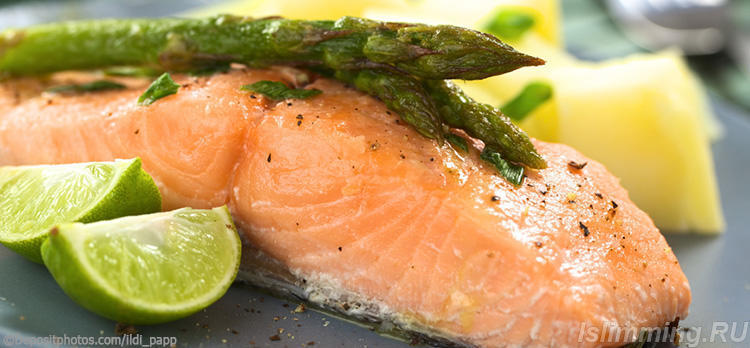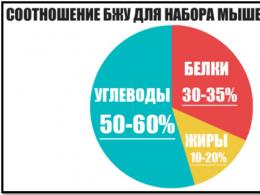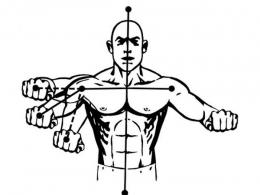200 grams of protein per day menu
I need help! I need 130g of protein per day, but I’m barely gaining 90-100. For lunch and dinner I eat 25g each, i.e. only 50 (this is, for example, 2 chicken breasts of 100g each). I eat another 250g of cottage cheese a day, which is about 20g of protein. Total 70. At the very least, I gain the remaining 30 g from skimmed milk and cheese, and so on, little by little. But anyway, with difficulty I gain 90-100 in the evening. And you need 130!!! How??? If you increase the amount of meat (for example, eat not 100g per 1 meal, but 150-200g), you just need to eat meat without everything (vegetables). Well, I’m not a meat eater at all, I just can’t eat meat, uuu ... If you increase the volume of cottage cheese to get the missing 30-40g of protein, it turns out that you need to eat 1 kg of this very cottage cheese per day ... I tried to eat chickpeas, but he terribly high-calorie, and I immediately fly out of the norm of carbohydrates ((Who has a lot of protein in the diet, the norm is like mine or more, tell me WHAT protein do you eat and in what quantities?
Protein diet is considered one of the most effective diets in the fight against excess weight. If you adhere to the correct version of this diet, then you will lose weight not only comfortably, but also correctly. Eating foods rich in protein can satisfy the feeling of hunger, and also ensures the restoration of muscle tissue after heavy physical exertion. Therefore, a protein diet is considered the best option for losing weight according to the “exercise + proper nutrition” method.
The same name is given to some incorrect options for nutrition systems, adhering to which, you can cause serious harm to your health.
There is a variant of the protein diet, in which it is required to exclude absolutely all carbohydrates from the diet. That is, you can only eat low-fat fish, chicken, lean veal, drink liquid (tea, decoctions, water) without sugar, and all other products should be excluded. The authors of such diets advise adhering to this diet for 10-14 days, allegedly for "improving the body and changing metabolism." If you do not play sports, then the 2468 diet is suitable for you.
In fact, the complete rejection of carbohydrates causes disturbances in the body. With the consumption of heavy food and the complete absence of carbohydrates, there is a risk of falling ill with the so-called ketosis - poisoning by the breakdown products of protein foods (ketone bodies).
Some authors of diets are of the opinion that only by completely eliminating carbohydrates from the diet, you can achieve results in losing weight. This is based on the fact that during ketosis the body draws energy from fat reserves. But modern research has shown that for effective weight loss on a protein diet, carbohydrate-containing foods should not be completely excluded.
The result of the diet depends on the daily number of calories, how many grams of pure protein per kilogram of weight you consumed throughout the day, and also on what kind of carbohydrates you ate during the day.

Excess weight goes away only in the presence of a constant energy deficit. Still, you will have to reduce portions, but, thanks to the content of protein in food, the feeling of hunger will be replaced by a feeling of satiety. However, the most important thing in the fight against extra pounds is a competent approach.
In order to calculate the number of calories your body needs, you need to calculate the basal metabolic rate (RBM). There are many formulas for calculating the indicator of energy consumption and for calculating the required daily calorie intake.
Here is some of them:
The formula for calculating the indicator of energy consumption, taking into account age and other features.
- Total Metabolism Index (GMR) = 655 + (1.8 * height in cm) + (9.6 * weight in kg) - (4.7 * age)
- Physical Activity Index:
- High activity (loads up to 7 times a week) - 1,725
- Average activity (loads up to 5 times a week) - 1.55
- Low activity (loads 1-3 grooves per week) - 1.375
- Sedentary lifestyle (sedentary) - 1.3
Total Energy Expenditure = GLR + Physical Activity.
The easiest way to calculate the energy consumption indicator.
The formula for calculating RBO is:
- Men \u003d 1 kcal * body weight in kg * 24 hours
- Women \u003d 0.9 kcal * body weight in kg * 24 hours
Dietary thermogenesis accounts for 10% of ROB
Calculate your individual daily energy consumption using the following table.
| Kind of activity | Approximate kcal/hour |
| Hard work | 300 |
| Moderately hard work | 200 |
| Mental labor or light physical work | 100 |
| Intensive sports | 500 |
| Morning exercises, jogging, dancing | 350 |
| calm walking | 190 |
| Housework | 120 |
| Computer work | 120 |
| Traveling in public transport | 100 |
| Rest lying down | 65 |
| Dream | 50 |
Energy Expenditure Score = Physical Activity + Dietary Thermogenesis + ELR
The total energy expenditure is the number of calories that you can easily afford to consume per day. To achieve the effect of losing weight, you should either reduce the number of calories consumed daily or increase physical activity.

Foods for a protein diet that should be consumed for effective weight loss:
- 4-6 egg whites.
- mixed shake, with dietary fiber (1 serving).
- whey protein isolate - a glass of skimmed milk + 30 g protein powder (1 serving).
- 200-250 gram fat-free cottage cheese.
- 150-200 grams of tofu.
- 100 grams of beef or veal.
- 150-300 grams of seafood.
- 150-200 grams of low-fat fish.
- 150-200 grams of chicken (breast, without skin).
The above products should be consumed exactly in the amount indicated. It is forbidden to bake these products with cheese, fry, use fatty sauces. As seasonings, you can use balsamic vinegar, natural soy sauce, garlic, herbs and lemon juice.

Protein diet is effective in most cases of its application. But a better result can only be achieved with a combination of diet and strength training.
Of course, during the diet you can not drink alcohol and sweets. To avoid breakdowns, take a day of rest every ten days. On this day, allow yourself to eat a small portion of your favorite product.
Before starting a protein diet (as well as any other), you should conduct a complete medical examination, consult with your doctor and your nutritionist.
If you suffer from diseases of the heart, liver, kidneys, or you are pregnant, then you should abandon this diet.
For vegetarians, you also need to take protein from somewhere, and you need to take vegetable protein. To do this, there is a legume diet, which contains plant-based protein, and also include lentils.
We all know that even a meager intake of protein for a person who does not go in for sports is enough to maintain life.
Having gone in for sports, going into the mode of gaining muscle mass, it is necessary to increase protein intake, BUT, simultaneously increasing everything else - both fats and carbohydrates, and water, and vegetables with fruits. With a deficiency of something, all the excess protein will simply go past the muscles.
In total, in our body, the exchange of protein (amino acids) reaches 500 grams per day, some of them are irretrievably lost. In case of severe damage to the internal organs, protein losses can be enormous, measured in hundreds of grams per day; normally, protein losses are not so great.
Where does the protein disappear in a person who does not train?
- Skin flakes, hair falls out, nails get cut.
- The walls of the intestines are renewed every few days.
- Protein amino acids are involved in reactions within cells, are parts of enzymes.
- Protein is excreted in the urine.
And 15-30 grams of protein per day is enough to maintain homeostasis for a non-training person, 0.5 grams per 1 kg without fat body weight.
If our task is to gain 1 kg of muscle mass per month, how much protein should be prepared for a month? 200 grams minimum for a month on top!
But we also need to repair damage to muscles, tendons, skin (bruises, scratches) arising from training, the rate of renewal of the same skin, hair growth can increase many times, synthesis throughout the body is dramatically accelerated. This is at least an extra 5-10 grams of protein per day, but it is better to include 20 or more grams per day here.
And with a good combination of circumstances, not 1 kg, but 2-3 kg of muscles can grow per month, if the whole body is training and you have just started training, early years of regular training gains can be very rapid. A minimum of 600 grams per month of protein is needed on top, this is 20 grams per day.
Total, at least you need to receive 1 gram per day full-fledged, animal protein per 1 kg skinny body weight, i.e. 200% norm for the non-trainer. The protein of cereals is better considered as 0.
Approximate diet from the book "Energy supply and nutrition in sports (Seluyanov)" for rapid weight gain (in strength sports):
- Breakfast: 2-3 egg omelet, bowl of pasta with vegetable oil, 1 piece of fruit.
- Lunch: 200 g of meat or fish, a bowl of rice, a glass of yogurt or kefir.
- Dinner: 200 g of meat, a bowl of soup, 300 g of potatoes or rice, vegetable salad.
- afternoon tea: 200 g meat or cottage cheese, a bowl of rice or boiled corn, 1 piece of fruit.
- Dinner: 200 g boiled meat, 300 g potatoes, lettuce, a cup of milk.
- Evening meal: 1.5-2 hours before bedtime: 2 soft-boiled eggs, scrambled eggs or cottage cheese, a serving of vegetables or bread.
And this is for an athlete weighing only 70-80 kg! Almost 1 kilogram of meat a day, every day!
For about half of the people, eating a kilogram of meat a day is not a problem, for the second half it is a big problem. But that's not all - along with a mass of protein foods, you need to consume even more carbohydrate foods, and a lot of salads, drink liters of water, up to 3-5 liters. And all this is a big headache to carry with you, but it still deteriorates, starts to smell, fog up (which is a sign of the explosive growth of microbes) and wander in the intestines.
It is also necessary to take into account who is not all meat digested and not all gastrointestinal tracts are healthy enough to absorb everything - with a diseased pancreas, for example hydrolyzed protein can be a solution if the doctor does not mind (there are different views, some believe that less protein is needed, others believe that with a sick gastrointestinal tract, on the contrary, 120 grams of protein is needed every day to repair damage)
Protein intake above 2 grams per 1 kg of lean body mass begins to cause already and fat burning effects.
Total - 100-120-150 gram full-fledged protein per day from all sources is the norm for a person training the whole body.
If you train rarely, and train only 1 muscle - the lower leg, or the biceps of the arms, then 60-80 grams of protein may be enough.
For those who, simply because of the nature of the work, cannot carry 3-4 or more meals with them in a thermal container (and the same eggs can’t be kept warm for more than 2-3 hours after cooking), protein bars and Whey Protein.
They should not be used as a substitute for food, it should be 1, maximum 2 doses of supplements in addition to 3-4-5 meals. ordinary food.
Yes, even 3 large meals+ 1 Supplement Can Cry Muscle Growth! Many pro strength athletes do just that.






